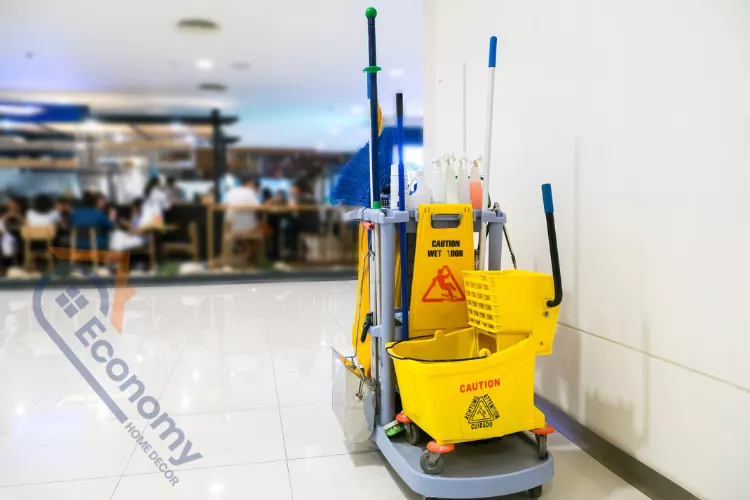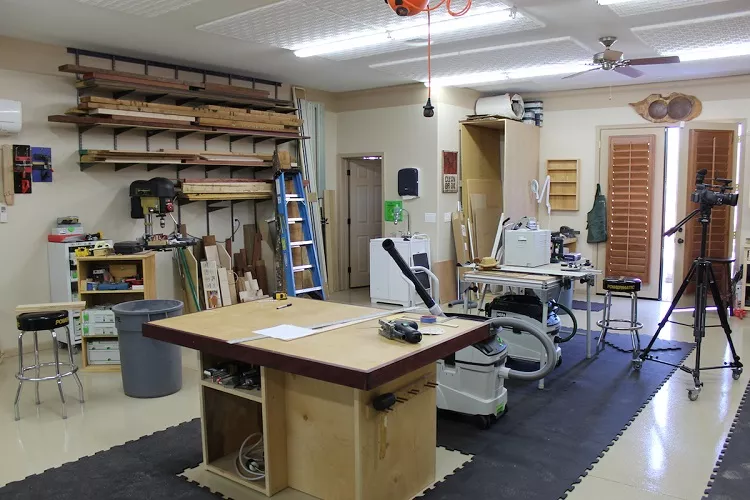Bring Life to Your Living Space

Running a successful business means juggling countless responsibilities, and maintaining a clean workplace often falls to the bottom of the priority list. That’s where commercial cleaners come in. These professional cleaning services specialize in keeping businesses, offices, warehouses, and commercial spaces looking their absolute best. Whether you’re managing a small retail shop or overseeing a large corporate building, understanding what commercial cleaners offer can transform your workspace and boost your business reputation.
What Are Commercial Cleaners?
Commercial cleaners are professional cleaning companies that provide specialized cleaning services for business environments. Unlike residential cleaners who focus on homes, these professionals handle larger spaces with specific needs. They’re trained to work with commercial-grade equipment, understand workplace safety regulations, and know how to clean different types of business facilities. From office buildings to medical centers, commercial cleaners tackle everything from daily maintenance to deep cleaning projects. Their expertise ensures your business environment remains healthy, safe, and welcoming for employees and customers alike.
Why Your Business Needs Commercial Cleaners
A clean workplace isn’t just about appearances. It directly impacts employee health, productivity, and customer perception. Studies show that employees working in clean environments take fewer sick days and feel more motivated. When customers walk into your business, cleanliness creates an immediate impression about your professionalism and attention to detail. Commercial cleaners bring consistency and expertise that’s hard to achieve with in-house cleaning staff. They follow systematic approaches, use professional equipment, and stay updated on the latest cleaning techniques and products. Whether you need local services like commercial cleaners London or providers in other regions, professional cleaning companies deliver results that make a real difference to your business operations.
Key Benefits Include:
- Improved employee health and reduced sick days
- Enhanced professional image for your business
- Time savings allowing you to focus on core business activities
- Access to specialized equipment and cleaning products
- Flexible scheduling to minimize disruption
Types of Services Offered by Commercial Cleaners
Commercial cleaners provide a wide range of services tailored to different business needs. Standard services typically include daily or weekly cleaning tasks like vacuuming, dusting, trash removal, and restroom sanitization. However, many companies offer specialized services such as carpet cleaning, window washing, floor polishing, and pressure washing. Some commercial cleaners even provide industry-specific services like medical facility sanitization or food service establishment cleaning. The key is finding a provider that understands your specific industry requirements and can customize their services accordingly.
| Service Type | Frequency | Best For |
|---|---|---|
| Daily Maintenance | Daily/Nightly | Offices, Retail |
| Deep Cleaning | Monthly/Quarterly | All Businesses |
| Carpet Cleaning | Quarterly/Annually | High-Traffic Areas |
| Window Washing | Monthly/Seasonal | Storefronts, Offices |
| Floor Care | Weekly/Monthly | Warehouses, Retail |
Specialized Cleaning Solutions
Beyond basic services, many commercial cleaners offer specialized solutions for unique business needs. This includes post-construction cleanup, emergency cleaning services, and green cleaning options using environmentally friendly products. Medical facilities might require disinfection protocols, while restaurants need kitchen deep cleaning and grease trap maintenance. Understanding these specialized services helps you choose the right cleaning partner for your specific industry.
How to Choose the Right Commercial Cleaners
Selecting the perfect cleaning company requires careful consideration. Start by checking credentials like proper licensing, insurance coverage, and bonded employees. Ask about their training programs and whether they conduct background checks on staff members. Request references from similar businesses in your industry and actually follow up on them. A reputable company will gladly provide testimonials and case studies. Additionally, discuss their quality control measures and how they handle complaints or service issues.
Questions to Ask Potential Cleaners:
- What training do your staff members receive?
- Are you insured and bonded?
- What products and equipment do you use?
- Can you provide references from similar businesses?
- What happens if we’re not satisfied with the service?
Understanding Commercial Cleaning Costs
Pricing for commercial cleaners varies based on multiple factors including your location, facility size, cleaning frequency, and specific service requirements. Most companies charge either by the hour, by square footage, or offer flat monthly rates. While it’s tempting to choose the cheapest option, remember that quality matters. Experienced cleaners might charge more but deliver better results, use superior products, and provide more reliable service. Always get detailed quotes from multiple companies and compare what’s included in each package.
Green Cleaning: The Future of Commercial Cleaning
Environmental consciousness is reshaping the commercial cleaning industry. More businesses are requesting eco-friendly cleaning solutions that protect both employee health and the planet. Green commercial cleaners use biodegradable products, microfiber cleaning cloths, and energy-efficient equipment. These sustainable practices reduce chemical exposure, improve indoor air quality, and demonstrate your company’s commitment to environmental responsibility. When interviewing cleaning companies, ask about their green cleaning options and certifications.
The Technology Revolution in Commercial Cleaning
Modern commercial cleaners leverage advanced technology to improve efficiency and results. Robotic vacuum cleaners handle large floor spaces, electrostatic sprayers ensure thorough disinfection, and management software tracks cleaning schedules and quality checks. Some companies even use UV light sanitization and HEPA filtration systems for enhanced air quality. These technological advances mean better cleaning outcomes, faster service, and more transparent communication about what’s being done in your facility.
Building a Strong Partnership with Your Cleaners
Once you’ve hired commercial cleaners, maintaining a good relationship ensures consistent, quality service. Establish clear communication channels and provide detailed feedback about your expectations. Schedule regular check-ins to discuss performance and any changing needs. Remember that cleaning staff are partners in maintaining your business environment, not just service providers. Treating them with respect and appreciation often results in better service and longer-term partnerships. Building this relationship creates a foundation for ongoing success and a workplace that truly shines.
Key Takeaways
- Commercial cleaners provide specialized services that go beyond basic cleaning
- Professional cleaning improves employee health, productivity, and customer perception
- Choose cleaners based on credentials, experience, and industry-specific expertise
- Green cleaning options benefit both your business and the environment
- Technology is transforming how commercial cleaning services operate
- Building strong relationships with your cleaning team ensures better long-term results
Conclusion
Investing in professional commercial cleaners is one of the smartest decisions you can make for your business. A clean workspace promotes health, boosts morale, and creates positive impressions that can directly impact your bottom line. By understanding what commercial cleaners offer, how to choose the right provider, and how to maintain a productive partnership, you’re setting your business up for success. Don’t let cleaning challenges distract you from what you do best—running your business. Let the professionals handle the cleaning while you focus on growth and customer satisfaction.



